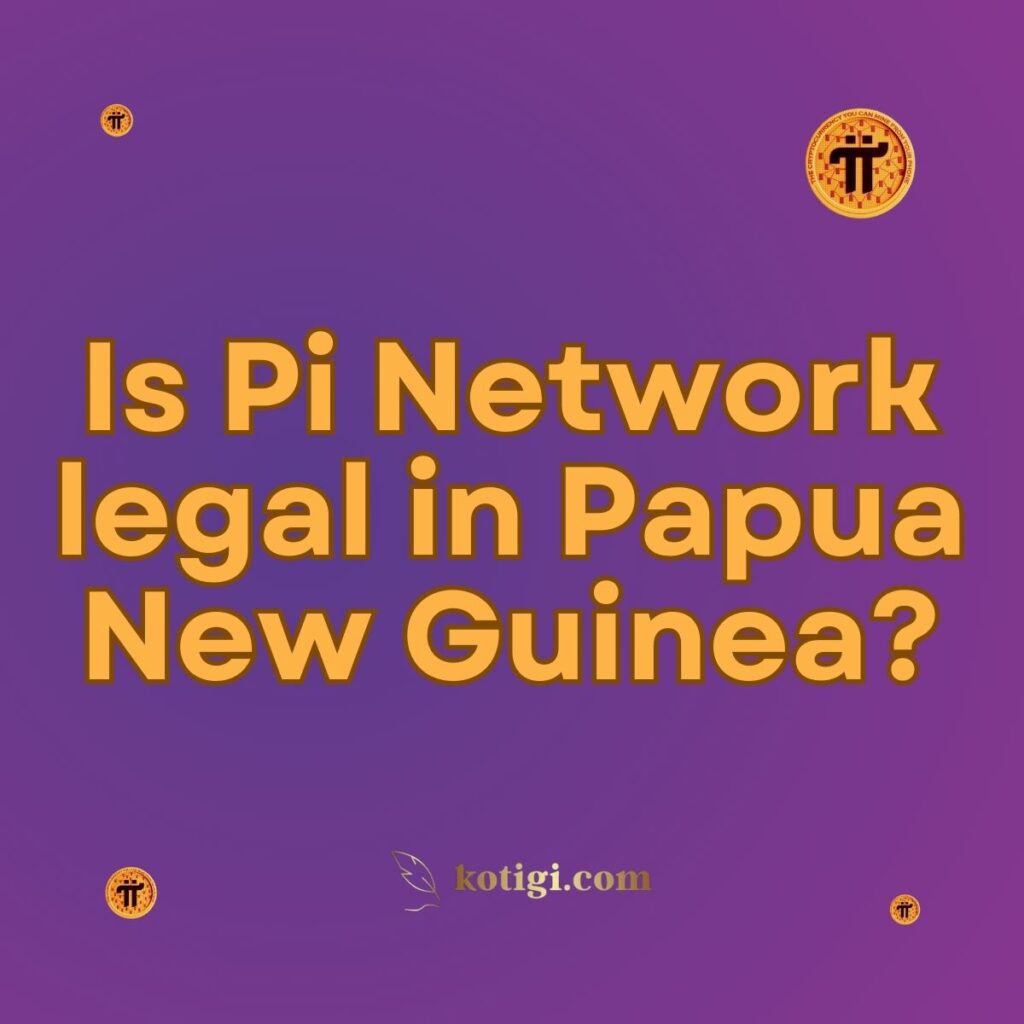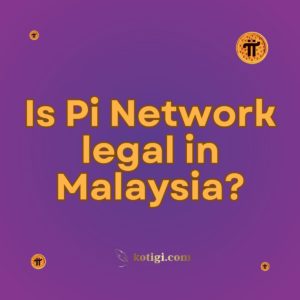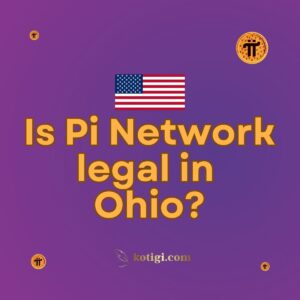
Is Pi Network legal in Papua New Guinea?
The legality of Pi Network in Papua New Guinea is currently uncertain, as there is no specific regulation addressing Pi Network or cryptocurrencies in general. While the country has been relatively slow in adopting formal cryptocurrency regulations, the central bank has issued warnings about the risks associated with digital currencies. Users in Papua New Guinea should proceed cautiously with Pi Network, keeping in mind potential future regulatory changes.
Introduction
Papua New Guinea (PNG) has a developing financial infrastructure and a growing interest in digital technology, including cryptocurrencies like Pi Network. With the global expansion of blockchain-based platforms, many individuals in PNG are curious about the legal standing of Pi Network within the country. In this article, we will explore whether Pi Network is legal in Papua New Guinea, how the platform aligns with the country’s current financial regulations, and what users need to consider when engaging with the network.
1. Overview of Cryptocurrency Regulations in Papua New Guinea
1.1 Cryptocurrency Regulation in Papua New Guinea
Papua New Guinea’s regulatory framework for cryptocurrencies is still in its infancy. Unlike more developed markets, the country has not yet implemented specific laws or guidelines for the use and trading of digital currencies. However, the Bank of Papua New Guinea (BPNG) has issued warnings similar to those seen in other developing nations, advising citizens to be cautious when dealing with cryptocurrencies due to the potential risks of fraud, volatility, and lack of consumer protection.
1.2 Lack of Formal Regulation
At present, Papua New Guinea does not have a comprehensive regulatory framework governing the use of cryptocurrencies like Pi Network. This means that while Pi Network is not explicitly banned, it is also not formally regulated, leaving its legal status somewhat ambiguous. As a result, users engaging with Pi Network in PNG do so in a largely unregulated environment, which can present both opportunities and risks.
1.3 Warnings from the Bank of Papua New Guinea
The BPNG has expressed concerns about the risks associated with digital currencies, particularly in terms of consumer protection and the potential for illegal activities such as money laundering. While these warnings have not led to an outright ban on cryptocurrency platforms like Pi Network, they serve as a reminder to users to proceed with caution. The lack of clear regulations means that users in Papua New Guinea should be aware of the risks associated with using Pi Network in an unregulated market.
2. Compliance and Financial Laws in Papua New Guinea
2.1 Anti-Money Laundering (AML) Compliance
Like many other countries, Papua New Guinea has Anti-Money Laundering (AML) regulations in place to prevent illicit financial activities. Although Pi Network does not currently facilitate financial transactions or token trading, any future changes to the platform that allow for the trading of Pi tokens could require compliance with these regulations. It will be essential for Pi Network and its users to ensure that they adhere to any AML guidelines set forth by the BPNG in the future.
2.2 Potential Regulatory Changes
As blockchain technology continues to gain traction, it is likely that Papua New Guinea will eventually develop a more robust regulatory framework for cryptocurrencies. Should this happen, Pi Network may need to adjust its operations to comply with any new laws. Users should stay informed about potential regulatory updates to ensure that their participation in Pi Network remains within legal boundaries.
2.3 Lack of Consumer Protection
One of the major risks of participating in an unregulated platform like Pi Network in Papua New Guinea is the lack of consumer protection. Since there are no specific legal safeguards in place for cryptocurrency users, individuals engaging with Pi Network may not have access to legal recourse in the event of fraud, theft, or other issues. This absence of protection underscores the importance of caution when using Pi Network in PNG.
3. Risks and Opportunities for Pi Network Users in Papua New Guinea
3.1 Regulatory Uncertainty
As with many countries that have yet to formalize their stance on cryptocurrencies, users of Pi Network in Papua New Guinea face regulatory uncertainty. While there is currently no ban on the platform, the government or central bank could introduce new regulations in the future that could impact Pi Network’s operations. Users should be prepared for potential changes that could affect their ability to mine, trade, or use Pi tokens.
3.2 Opportunities in a Developing Financial Market
Despite the regulatory uncertainty, there are opportunities for Pi Network users in Papua New Guinea. The platform’s mobile-based mining model, which requires little technical knowledge or energy consumption, offers a unique opportunity for individuals to participate in the digital economy without significant upfront investment. For users in PNG, this presents a chance to engage with blockchain technology in a way that could promote financial inclusion, especially for those without access to traditional banking services.
3.3 Risk of Market Volatility
As with any cryptocurrency, Pi Network’s tokens are likely to be subject to market volatility once they become tradable. Users in Papua New Guinea should be aware of the risks associated with such volatility, as the value of Pi tokens could fluctuate significantly. Given the lack of regulatory oversight, users may also face challenges in managing these risks effectively.
4. Pi Network’s Potential Role in Papua New Guinea’s Financial Future
4.1 Financial Inclusion
Papua New Guinea has a large population that remains unbanked or underbanked, making financial inclusion a key goal for the government and financial institutions. Pi Network, with its mobile-first approach to cryptocurrency mining, could play a role in expanding access to digital financial services for those who lack traditional banking options. By enabling users to mine and hold Pi tokens on their smartphones, the platform offers a potential gateway into the digital economy.
4.2 Digital Transformation
The Papua New Guinea government has expressed interest in leveraging digital technologies to modernize the economy, and cryptocurrencies like Pi Network could be part of this transformation. As blockchain technology continues to evolve, Pi Network has the potential to support the country’s digital growth by providing a platform for users to engage with cryptocurrency in a low-barrier, accessible way.
4.3 Challenges of Regulatory Adaptation
However, for Pi Network to fully integrate into Papua New Guinea’s financial landscape, it will need to navigate the challenges of regulatory adaptation. The BPNG and other financial authorities may eventually introduce laws that govern the use of cryptocurrencies, and Pi Network will need to ensure that it complies with these regulations. Users should also be aware that changes in the regulatory environment could impact their ability to use or trade Pi tokens in the future.
5. How Pi Network Can Navigate the Regulatory Landscape in Papua New Guinea
5.1 Staying Informed about Local Regulations
For users and developers interested in Pi Network’s growth in Papua New Guinea, staying informed about local regulations is crucial. As the government and central bank continue to assess the role of cryptocurrencies in the economy, any new regulations could have a direct impact on Pi Network’s operations. By keeping up with these developments, users can ensure that they remain compliant with local laws and avoid potential legal issues.
5.2 Collaborating with Local Authorities
Pi Network may benefit from collaborating with local authorities in Papua New Guinea to ensure that it operates within legal boundaries. By working with regulators to address concerns about consumer protection and financial stability, Pi Network could improve its chances of gaining wider acceptance in the country. Engaging with policymakers early on could also help the platform adapt to future regulatory changes more smoothly.
5.3 Educating Users on Compliance
Education is key to ensuring that users of Pi Network in Papua New Guinea understand their responsibilities when it comes to regulatory compliance. As the platform grows, it may be beneficial for Pi Network to provide resources that help users navigate the legal landscape, particularly if new regulations are introduced. This could include guidelines on AML compliance, security best practices, and how to safely use Pi tokens in the future.
Conclusion
Pi Network’s legal status in Papua New Guinea remains uncertain, as the country has not yet developed specific regulations governing the use of cryptocurrencies. While the platform is not banned, users should be aware of the risks associated with participating in an unregulated environment, including the lack of consumer protection and potential future regulatory changes. By staying informed and cautious, users in Papua New Guinea can navigate these challenges as they engage with Pi Network.
Key Takeaways
- Cryptocurrencies like Pi Network are not explicitly banned in Papua New Guinea, but they are currently unregulated.
- The Bank of Papua New Guinea has issued warnings about the risks of digital currencies, advising users to proceed with caution.
- Pi Network offers opportunities for financial inclusion and digital transformation, especially for the unbanked population in PNG.
- Users face regulatory uncertainty, and future laws could impact Pi Network’s operations in the country.
- Education on compliance and staying informed about local regulations are essential for Pi Network users in Papua New Guinea to mitigate risks and navigate the legal landscape.





